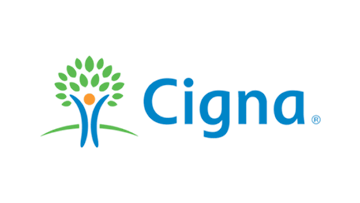
Behavioral Health Support in Nampa
Idaho Behavior offers diverse mental health services Nampa Idaho that cater to individuals and families seeking support through challenging times. While the emphasis is on evidence-based practices, the approach is inherently compassionate, aiming to empower each client to achieve personal and family goals. Services include individual therapy and family counseling, focusing on creating a transformative impact.
Idaho Behavior’s commitment goes beyond individual sessions, aiming to craft a supportive community environment. Their team is trained to handle a spectrum of issues, from anxiety and depression to autism spectrum disorders and developmental disabilities. This holistic support system ensures clients and families find enduring solutions.
Tailored Therapy Options
Individual Therapy Focus
At Idaho Behavior, individual therapy is tailored to meet the unique needs of each client. By using a variety of therapeutic modalities, clients are encouraged to explore and understand their thoughts and behaviors in a safe space. This personalized approach facilitates growth, helping individuals navigate life’s challenges.
Therapists at Idaho Behavior are well-versed in numerous therapeutic techniques ensuring that treatment plans are as dynamic as the clients they serve. This flexibility is key as it allows therapists to adapt to the evolving needs of their clients, ensuring progress is continually being made.
Family Counseling Solutions
Family dynamics can often be the bedrock of mental health challenges or healing. Idaho Behavior recognizes this and offers comprehensive family counseling services that address interpersonal relationships and communication barriers. By working together with families, counselors aim to create new dialogue paths and improve understanding, fostering a harmonious household.
Skill Building for Sustainable Change
Beyond traditional counseling, Idaho Behavior emphasizes skill-building sessions. These sessions equip clients with practical tools necessary for everyday success, targeting behavioral changes that enhance the quality of life. Whether it’s in school, home, or work settings, these skills are designed for real-world application.
Clients learn coping strategies, problem-solving skills, and emotional regulation techniques, all crafted to ensure resilience and adaptability. This hands-on approach not only empowers individuals but also instills confidence in family members as they witness positive change.
Addressing Diverse Needs
Idaho Behavior is adept at diagnosing and treating a wide array of mental health conditions. Their expertise covers anxiety, depression, developmental disabilities, and autism spectrum disorders among others. This diversity in service is vital as it ensures that the specific needs of each client are met, no matter how complex.
With a focus on evidence-based practices, Idaho Behavior guarantees that each treatment plan adheres to the highest standards. This commitment to quality ensures that clients receive the most effective care tailored to their unique circumstances.
Family involvement is encouraged to ensure consistent support and understanding throughout the treatment process. By integrating family members, Nevada Behavior helps in building a supportive network, essential for comprehensive care.
Client-Centered Approach
Idaho Behavior stands out for its client-centered approach, offering support that respects and values each individual’s needs and preferences. This approach fosters an environment where clients feel respected, leading to improved therapeutic outcomes. By focusing on the individual, Idaho Behavior ensures that each client is active in their treatment journey.
Therapists are trained to listen intentionally, creating a therapeutic alliance built on trust. This relationship is crucial for achieving meaningful change, allowing clients to feel safe and supported throughout their treatment experience.
Creating a Welcoming Environment
Idaho Behavior’s facility in Nampa is designed to be welcoming and accessible, ensuring comfort for all who seek services. The aesthetic and atmosphere of the space reflect the organization’s commitment to making mental health care approachable. This environment promotes healing by providing a safe space where clients can focus on their mental health journey without distraction.
The location is strategically accessible, serving communities throughout the region, which reduces barriers to receiving the essential care needed. This accessibility is crucial as many individuals face logistical challenges when seeking mental health services Nampa Idaho.
Community Impact and Resilience
Idaho Behavior is dedicated to fostering mental wellness within the community, promoting overall resilience. By working collaboratively with clients and community organizations, they enhance awareness and understanding of mental health issues, reducing stigma.
Through workshops and educational programs, Idaho Behavior helps to cultivate an informed community that values mental health as a cornerstone of well-being. These initiatives reinforce the message that mental health services Nampa Idaho are essential and beneficial for all individuals and families.
Ongoing Professional Development
To maintain the highest standard of care, Idaho Behavior invests in continual professional development for its staff. This commitment to ongoing learning ensures that therapists and counselors remain well-versed in the latest behavioral health advancements and industry best practices. Clients can trust that they are receiving cutting-edge care from knowledgeable professionals.
Professional development opportunities are varied, from attending seminars to participating in workshops. These educational experiences allow staff to explore new methodologies and approaches, which they can integrate into their practice, enhancing patient care.

What are the top 3 mental health issues in Idaho?
In Idaho, some of the most prevalent mental health issues include anxiety, depression, and substance use disorders. Anxiety disorders often manifest as persistent worry or fear that can disrupt day-to-day activities. Depression, characterized by prolonged periods of sadness or hopelessness, affects many individuals across diverse age groups. Substance use disorders, involving the problematic consumption of drugs or alcohol, are also a significant concern. Addressing these issues involves comprehensive care and community support, with organizations like Idaho Behavior offering tailored programs to meet these challenges head-on. As treatments evolve, engaging in open discussions and seeking support can help alleviate these conditions.
Where does Idaho rank in mental health services?
Idaho has faced challenges in terms of mental health service availability, often ranking lower in national assessments of mental health care accessibility. Despite these challenges, initiatives like Idaho Behavior are stepping up to bridge the gap by providing comprehensive and accessible mental health services throughout the region. These efforts are creating more supportive networks and improving the quality of care for residents. By investing in community-based mental health programs and encouraging policy changes, Idaho is making strides to enhance its mental health care system.
What is the mental health services tax?
The mental health services tax is generally a levy imposed to fund mental health programs within a state or locality. This tax aims to support services such as crisis intervention, counseling, and rehabilitation programs, ensuring adequate funding for mental health initiatives. While Idaho currently does not implement a specific mental health services tax, funding for these services often comes from a mix of federal, state, and local resources. Adequate support through taxes or other funding mechanisms is vital for maintaining comprehensive mental health services that can benefit all community members.
Why should mental health care be free?
The argument for free mental health care centers around the belief that mental health is as crucial as physical health. Mental health issues impact daily living and overall well-being, and making care accessible without financial barriers can prevent chronic conditions and improve quality of life. Idaho Behavior, for instance, advocates for accessible care, emphasizing the importance of mental health support regardless of socioeconomic status. By removing financial constraints, more individuals can seek necessary help early, leading to better outcomes and reducing the long-term burden on healthcare systems. Imagine a world where everyone can access mental health services when they need them–it’s a step towards a healthier society.
How does Idaho Behavior utilize evidence-based practices in their services?
Idaho Behavior integrates evidence-based practices by employing treatment methods that are scientifically validated to be effective. This involves using up-to-date research and proven therapies tailored to individual client needs. For example, cognitive-behavioral therapy (CBT) is often used for anxiety and depression, offering structured sessions that help clients identify and change negative thought patterns. By prioritizing these approaches, Idaho Behavior ensures that clients receive the most effective and personalized care, leading to substantial progress and positive change.
What are the benefits of family counseling at Idaho Behavior?
Family counseling at Idaho Behavior fosters communication and resolves conflicts within family units. It is particularly beneficial in improving relationships, understanding family roles, and addressing issues that affect family dynamics. By facilitating open dialogue, families can better support each other and enhance their collective emotional health. An example might be working with a family experiencing tension due to adolescent behavioral changes, where counseling helps parents and children develop coping strategies and communication skills. This approach not only heals but strengthens family bonds over time.
What impact do skill-building sessions have on clients at Idaho Behavior?
Skill-building sessions at Idaho Behavior are transformative, equipping clients with practical strategies for managing daily challenges. These sessions may focus on developing coping skills, emotional regulation, or problem-solving techniques tailored to individual circumstances. For instance, a student struggling with social anxiety might learn relaxation techniques to ease anxiety in classroom settings. By gaining these skills, clients not only improve their immediate situations but also build long-term resilience. These empowering sessions often result in increased confidence and independence, allowing clients to thrive in various environments.
Resources
- Substance Abuse and Mental Health Services Administration – Provides information and resources related to behavioral health, including treatment services and support.
- National Alliance on Mental Illness – Offers support, education, and advocacy for individuals and families affected by mental illness.
- American Psychiatric Association – A leading organization of psychiatric professionals, offering resources on mental health treatment and research.
- American Psychological Association – Provides information on psychology, mental health, and resources for finding therapists or treatment options.




